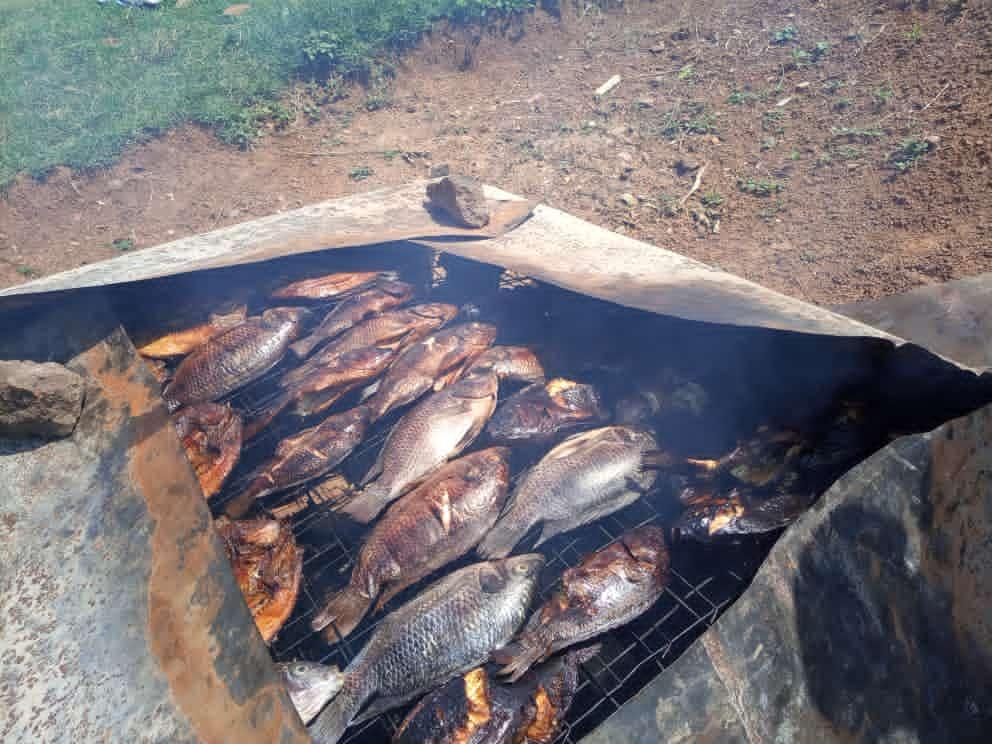NutriFish Product Launch and Dissemination Event
Limited access to micronutrient-rich foods and animal protein is a key factor behind nutritional deficiencies in Uganda. It is recommended individuals consume around 25 kg of fish per year; yet, in Uganda, currently only half this amount is consumed – and intake is anticipated to further decline as the population grows.
Supported by the International Development Research Centre (IDRC) and the Australian Centre for International Agricultural Research (ACIAR) through their joint programme, Cultivate Africa’s Future Fund (CultiAF), NutriFish aims to address the nutritional needs of vulnerable groups that cannot afford expensive commercial fish but are in critical need of high quality nutritious diets. The Project is coordinated by Dr Jackson Efitre, Senior Lecturer in the Department of Zoology, Entomology and Fisheries Sciences, College of Natural Sciences (CoNAS), Makerere University.
Innovations
• Formulating fish-enriched foods for vulnerable consumer groups using small silver fish (called ‘Mukene’) and fish by-products.
• Reducing post-harvest losses by using cost-effective solar tent driers and fish containers with drainage. • Training ‘champions’ to spread awareness about good handling and processing practices and nutritional value of small fish. • Developing an app – electronic Catch Assessment Survey (eCAS) – to provide real-time monitoring of fish catches with smartphones.
Key results
-Five high-value nutritious products (baby food, sauce, maize meal, snacks, and seasoning) using Mukene have been developed by NutriFish. Containing high levels of key micronutrients (calcium, zinc, iron), Mukene has been used to increase available fish-enriched products to the nutritionally vulnerable and improve diet diversity. A 50g portion of the baby food flour provides more than one-third of a child’s daily protein, iron, zinc, and folic acid requirements.
-Evaluated by 300 street vendors and 60 retailers in Kampala, the sauce garnered positive feedback for being quick to cook, which helps low-income families save time and energy resources. A Mukene recipe book, containing 16 recipes rich in protein, calcium, zinc, and iron, has also been developed and endorsed by the Minister of State for Fisheries.
-Fishers have been helped to access loans to purchase boats and fish containers which improve hygiene and quality by improving drainage and reducing compaction of fish. Two enterprise fishing groups with over 70 boats have been established and are working together – an approach which ensures more consistent supply and standards, and results in over 3.7 tons of fish caught each month.
By September 2022, 8,960 records of catch data had been collected and transmitted through the eCAS system by trained local enumerators. Over 200 stakeholders are using the application, including the Directorate of Fisheries Resources and the Fisheries Protection Unit, which uses the data to help prevent overfishing.
-Solar tent driers – greenhouse-like structures that reduce the risk of contamination – provide clean and efficient storage and drying, especially during the wet season, were also introduced. As well as reduced drudgery for women, the increased fish quality has doubled their incomes, from US$1 to US$2/kg, and tripled the shelf-life of dried small fish to almost five months. The driers have also attracted the attention of policymakers, with the Sectoral Committee of Parliament on Agriculture, Animal Industry, and Fisheries specifically recommending their use in April 2022 for improving fish processing.
To encourage consumption of Mukene products, NutriFish developed a radio-based awareness campaign. More than 12 million listeners were reached by 29 different ‘spot’ messages in local languages and four 15-minute in-studio conversations – a significant step in tackling long-standing social beliefs that Mukene is a food only eaten by poor families or animals.
The project also conducted awareness training with 326 people (200 women) to reduce gender inequalities. As a result, domestic violence dropped by 30%, the number of women in the fish value chain increased, more couples began to make joint household decisions, and more men carried out household tasks, increasing from 15% to 20%.
Product Launch and Dissemination Event
The College of Natural Sciences (CoNAS), Makerere University in collaboration with the National Fisheries Resources Research Institute (NaFIRRI) and partners – International Development Research Centre (IDRC) will hold a product launch and project dissemination event on Monday, 27th February 2023 at the Yusuf Lule Central Teaching Facility (CTF2) from 9:00am-3:00pm. The event will be presided over by the Minister of State for Fisheries and will be graced by a number of dignitaries from the fisheries sector. The event will feature an exhibition of several fish products developed under the NutriFish project.

